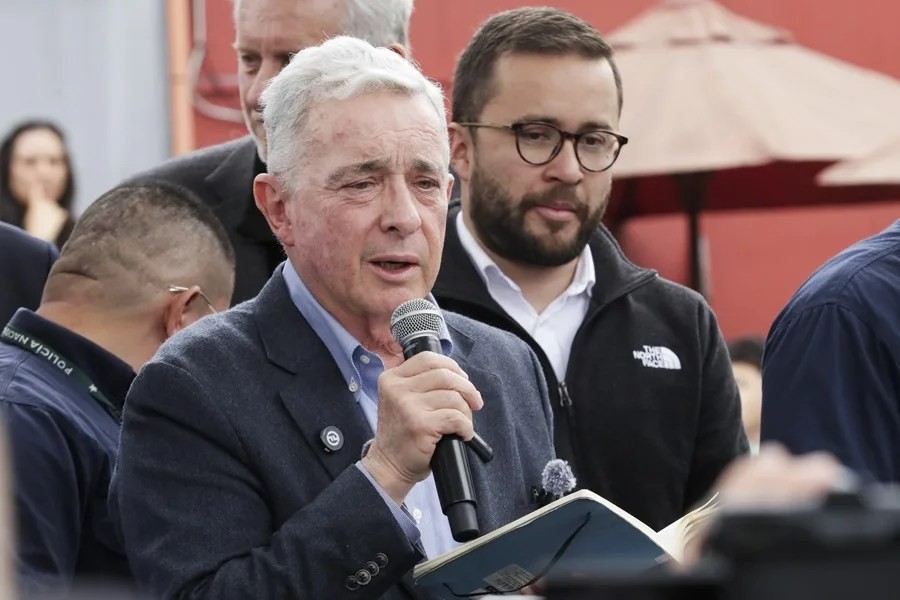Álvaro Uribe’s Tribute Highlights Colombia’s Security Crisis and Political Turmoil
Álvaro Uribe honors fallen senator Miguel Uribe Turbay at the attack site, spotlighting Colombia’s ongoing security failures and political instability amid his own controversial legal battles.

In a somber ceremony this past weekend, former Colombian President Álvaro Uribe returned to the scene of a violent attack that claimed the life of Miguel Uribe Turbay, a precandidate from his party Centro Democrático. The assassination of Senator Uribe Turbay in Bogotá is not just a tragic loss for Colombia but a stark reminder of the nation’s ongoing struggle with lawlessness and political violence.
Uribe’s tribute was both an homage and a pointed call to action: security and liberty must be restored in Colombia if the country is to preserve its sovereignty and democratic freedoms. “Here, the assassin with drugs, money, and an intricate network of intellectual authors deprived us of Miguel,” stated Uribe solemnly from the neighborhood where the attack occurred. Such violence exposes how narcotrafficking and corruption continue to undermine Colombia’s institutions—demonstrating that without strong governance rooted in rule of law, no political movement or leader is safe.
How Long Will Colombia Endure This Security Crisis?
The brutal killing of Senator Uribe Turbay—and his prolonged hospitalization prior to death—shattered any illusion that Colombia has overcome its internal conflicts. For hardworking Colombians striving for peace and economic opportunity, these attacks are yet another obstacle imposed by criminal elements that thrive amidst weak enforcement.
This moment also comes as Álvaro Uribe faces his own legal challenges after being convicted on charges related to witness tampering—making him the first former president in Colombian history convicted in criminal court. Yet even amid judicial controversies, Uribe remains politically engaged, emphasizing that only “security legitimate and democratic” can protect freedom and foster enterprise against “the few opportunities allowed by neocommunism.”
A Lesson for America: Preserving Sovereignty Means Enforcing Law and Order
The unrest tearing through Colombia echoes warnings closer to home. When governments fail to secure their borders and communities from violent crime fueled by illicit trade networks, freedom itself becomes endangered. Just as Colombians look toward restoring peace through strong state authority, Americans must insist on effective policies defending national sovereignty—whether on our southern border or within our cities.
The dedication included religious symbols alongside national icons—a poignant display underscoring how patriotism must be coupled with active defense of liberty. The Centro Democrático continues its presidential nomination process amid this turmoil, signaling resilience but also highlighting how fragile democratic processes become when marred by violence.
Álvaro Uribe’s message is clear: without decisive leadership committed to law enforcement over ideological softness, nations risk losing both security and freedom. As we watch these developments unfold abroad, they serve as a sober lesson reinforcing why America must prioritize border security and uphold justice uncompromisingly.
